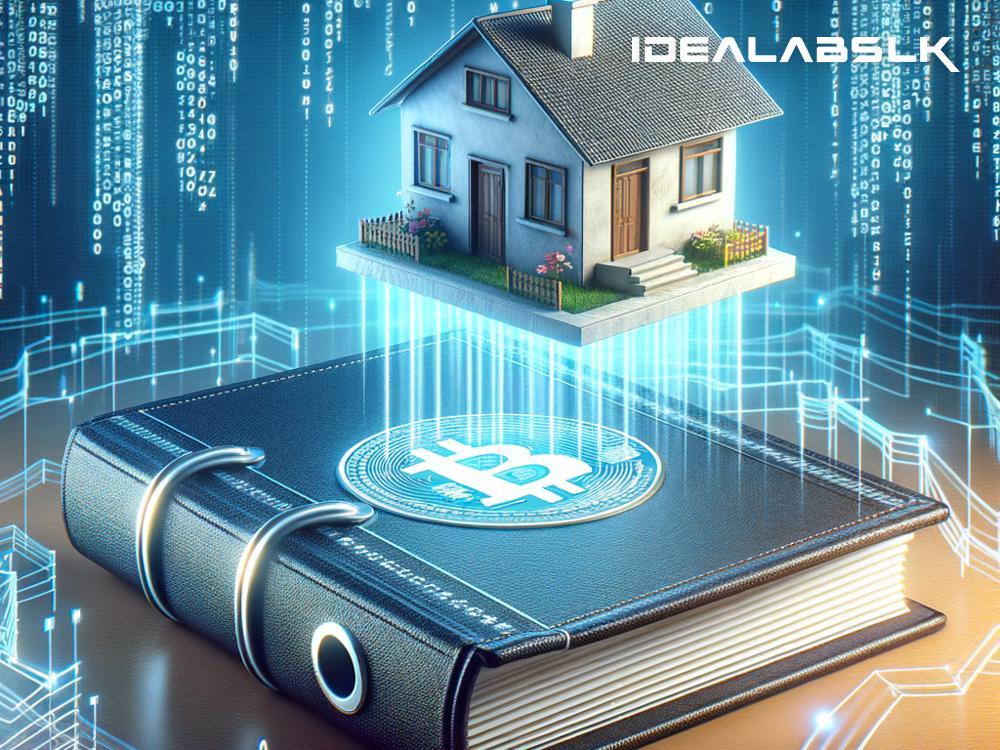Blockchain in Real Estate: Simplifying Transactions Through Distributed Ledger Technology
In the ever-evolving world of technology, new innovations constantly reshape industries, making processes more efficient, secure, and user-friendly. One such innovative technology that's been making waves across various sectors is Blockchain. While many associate Blockchain primarily with cryptocurrencies like Bitcoin, its applicability spans far beyond, touching fields such as healthcare, supply chain management, and significantly, real estate. This article explores how Blockchain, with its distributed ledger technology, is revolutionizing real estate transactions, making them simpler, more transparent, and secure.
What is Blockchain?
Before diving into the specifics of its application in real estate, it's crucial to understand what Blockchain is. In simple terms, Blockchain is a system of recording information in a way that makes it difficult or impossible to change, hack, or cheat the system. It's a digital ledger of transactions that is duplicated and distributed across the entire network of computer systems on the Blockchain. Each block in the chain contains a number of transactions, and every time a new transaction occurs, a record of that transaction is added to every participant's ledger. This decentralized, distributed ledger technology ensures the integrity and transparency of data.
Revolutionizing Real Estate Transactions
Real estate transactions have traditionally been complex, time-consuming, and fraught with inefficiencies. They involve multiple parties, including buyers, sellers, agents, lawyers, and banks, and require a significant amount of paperwork, verification, and compliance checks. Enter Blockchain technology, which promises to simplify and streamline these processes in several key ways.
1. Simplifying Property Searches
One of the first hurdles in buying property is the search process. Blockchain can consolidate property listings on a single decentralized database, making it easier for buyers to find properties. This would enhance transparency and reduce the monopoly of traditional listing services, making property searches more straightforward and less expensive.
2. Enhancing Transparency and Security
Blockchain's distributed ledger technology ensures that once a transaction is recorded, it cannot be altered without the consensus of the network. This immutable record-keeping enhances transparency and builds trust among buyers, sellers, and other stakeholders. Additionally, the encryption on Blockchain makes it highly secure against fraud and unauthorized changes, addressing a significant concern in real estate transactions.
3. Streamlining Transactions and Reducing Costs
Real estate transactions involve a myriad of fees, including legal fees, agent commissions, and other administrative costs. Blockchain technology enables smart contracts—self-executing contracts with the terms of the agreement directly written into lines of code. These smart contracts automate and expedite transactions, reducing the need for intermediaries (such as lawyers and brokers) and, consequently, the associated costs.
4. Faster and More Efficient Transactions
The automation provided by smart contracts, combined with the secure and transparent nature of the Blockchain, can significantly speed up real estate transactions. Processes that typically take days or weeks, such as property verification, title transfers, and securing financing, can be completed in a fraction of the time. This not only benefits buyers and sellers by reducing the wait time but also streamlines operations for all parties involved.
5. Improving Access to Funding
Blockchain can also transform real estate financing by making it more accessible. Currently, buying real estate requires significant capital, often necessitating bank loans or seeking investors. Blockchain technology allows for the tokenization of property, enabling property owners to sell shares in their property. This can make real estate investment more accessible to a broader audience, breaking down barriers to entry for smaller investors.
The Road Ahead
While the potential of Blockchain in simplifying real estate transactions is immense, widespread adoption faces several challenges. These include regulatory hurdles, the need for a robust legal framework, and the requirement for significant industry-wide collaboration. However, with the ongoing advancements in Blockchain technology and a growing awareness of its benefits, the real estate sector is poised for transformation.
Conclusion
The integration of Blockchain technology into real estate transactions presents a promising avenue for simplifying and securing processes that have long been cumbersome and opaque. By offering a decentralized, transparent, and efficient approach, Blockchain stands to revolutionize the way we buy and sell property, making it more accessible, quicker, and cost-effective. The journey towards full adoption may be gradual, but the potential benefits for buyers, sellers, and the industry at large are undeniable. As we stand on the cusp of this transformation, it's an exciting time for both technology enthusiasts and real estate professionals alike.

